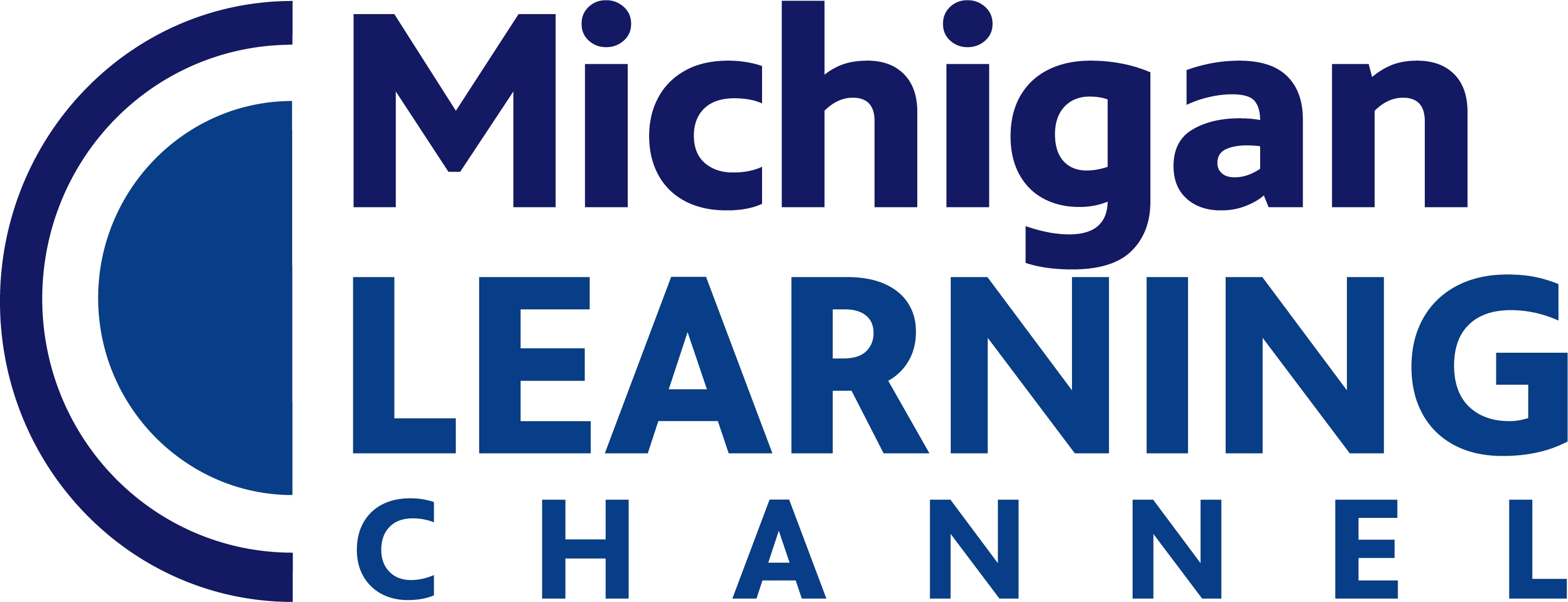Grades
Standard
By the end of the year, read and comprehend literature, including stories, dramas, and poems, in the grades 6–8 text [...]
Determine a theme or central idea of a text and how it is conveyed through particular details; provide a summary [...]
Describe how a particular story’s or drama’s plot unfolds in a series of episodes as well as how the characters [...]
Determine the meaning of words and phrases as they are used in a text, including figurative and connotative meanings; analyze [...]
Analyze how a particular sentence, chapter, scene, or stanza fits into the overall structure of a text and contributes to [...]
Explain how an author develops the point of view of the narrator or speaker in a text.
Compare and contrast the experience of reading a story, drama, or poem to listening to or viewing an audio, video, [...]
Compare and contrast texts in different forms or genres (e.g., stories and poems; historical novels and fantasy stories) in terms [...]
Cite textual evidence to support analysis of what the text says explicitly as well as inferences drawn from the text.
By the end of the year, read and comprehend literary nonfiction in the grades 6–8 text complexity band proficiently, with [...]
Determine a central idea of a text and how it is conveyed through particular details; provide a summary of the [...]
Analyze in detail how a key individual, event, or idea is introduced, illustrated, and elaborated in a text (e.g., through [...]
Determine the meaning of words and phrases as they are used in a text, including figurative, connotative, and technical meanings.
Analyze how a particular sentence, paragraph, chapter, or section fits into the overall structure of a text and contributes to [...]
Determine an author’s point of view or purpose in a text and explain how it is conveyed in the text.
Integrate information presented in different media or formats (e.g., visually, quantitatively) as well as in words to develop a coherent [...]
Trace and evaluate the argument and specific claims in a text, distinguishing claims that are supported by reasons and evidence [...]
Form and use the perfect (e.g., I had walked; I have walked; I will have walked) verb tenses.
Use verb tense to convey various times, sequences, states, and conditions.
Demonstrate command of the conventions of standard English capitalization, punctuation, and spelling when writing.
Use a comma to separate an introductory element from the rest of the sentence.
Use a comma to set off the words yes and no (e.g., Yes, thank you), to set off a tag [...]
Use underlining, quotation marks, or italics to indicate titles of works.
Spell grade-appropriate words correctly, consulting references as needed.
Use knowledge of language and its conventions when writing, speaking, reading, or listening.
Expand, combine, and reduce sentences for meaning, reader/listener interest, and style.
Compare and contrast the varieties of English (e.g., dialects, registers) used in stories, dramas, or poems.
Determine or clarify the meaning of unknown and multiple-meaning words and phrases based on grade 5 reading and content, choosing [...]
Use context (e.g., cause/effect relationships and comparisons in text) as a clue to the meaning of a word or phrase.
Use common, grade-appropriate Greek and Latin affixes and roots as clues to the meaning of a word (e.g., photograph, photosynthesis).
Consult reference materials (e.g., dictionaries, glossaries, thesauruses), both print and digital, to find the pronunciation and determine or clarify the [...]
Demonstrate understanding of figurative language, word relationships, and nuances in word meanings.
Interpret figurative language, including similes and metaphors, in context.
Recognize and explain the meaning of common idioms, adages, and proverbs.
Produce clear and coherent writing in which the development and organization are appropriate to task, purpose, and audience. (Grade-specific expectations [...]
With guidance and support from peers and adults, develop and strengthen writing as needed by planning, revising, editing, rewriting, or [...]
With some guidance and support from adults, use technology, including the Internet, to produce and publish writing as well as [...]
Conduct short research projects that use several sources to build knowledge through investigation of different aspects of a topic.
Recall relevant information from experiences or gather relevant information from print and digital sources; summarize or paraphrase information in notes [...]
Draw evidence from literary or informational texts to support analysis, reflection, and research.
Apply grade 5 Reading standards to literature (e.g., “Compare and contrast two or more characters, settings, or events in a [...]
Apply grade 5 Reading standards to informational texts (e.g., “Explain how an author uses reasons and evidence to support particular [...]
Engage effectively in a range of collaborative discussions (one-on-one, in groups, and teacher-led) with diverse partners on grade 5 topics [...]
Come to discussions prepared, having read or studied required material; explicitly draw on that preparation and other information known about [...]
Follow agreed-upon rules for discussions and carry out assigned roles.
Pose and respond to specific questions by making comments that contribute to the discussion and elaborate on the remarks of [...]
Review the key ideas expressed and draw conclusions in light of information and knowledge gained from the discussions.
Grades
Standard
By the end of the year, read and comprehend literature, including stories, dramas, and poems, in the grades 6–8 text [...]
Determine a theme or central idea of a text and how it is conveyed through particular details; provide a summary [...]
Describe how a particular story’s or drama’s plot unfolds in a series of episodes as well as how the characters [...]
Determine the meaning of words and phrases as they are used in a text, including figurative and connotative meanings; analyze [...]
Analyze how a particular sentence, chapter, scene, or stanza fits into the overall structure of a text and contributes to [...]
Explain how an author develops the point of view of the narrator or speaker in a text.
Compare and contrast the experience of reading a story, drama, or poem to listening to or viewing an audio, video, [...]
Compare and contrast texts in different forms or genres (e.g., stories and poems; historical novels and fantasy stories) in terms [...]
Cite textual evidence to support analysis of what the text says explicitly as well as inferences drawn from the text.
By the end of the year, read and comprehend literary nonfiction in the grades 6–8 text complexity band proficiently, with [...]
Determine a central idea of a text and how it is conveyed through particular details; provide a summary of the [...]
Analyze in detail how a key individual, event, or idea is introduced, illustrated, and elaborated in a text (e.g., through [...]
Determine the meaning of words and phrases as they are used in a text, including figurative, connotative, and technical meanings.
Analyze how a particular sentence, paragraph, chapter, or section fits into the overall structure of a text and contributes to [...]
Determine an author’s point of view or purpose in a text and explain how it is conveyed in the text.
Integrate information presented in different media or formats (e.g., visually, quantitatively) as well as in words to develop a coherent [...]
Trace and evaluate the argument and specific claims in a text, distinguishing claims that are supported by reasons and evidence [...]
Form and use the perfect (e.g., I had walked; I have walked; I will have walked) verb tenses.
Use verb tense to convey various times, sequences, states, and conditions.
Demonstrate command of the conventions of standard English capitalization, punctuation, and spelling when writing.
Use a comma to separate an introductory element from the rest of the sentence.
Use a comma to set off the words yes and no (e.g., Yes, thank you), to set off a tag [...]
Use underlining, quotation marks, or italics to indicate titles of works.
Spell grade-appropriate words correctly, consulting references as needed.
Use knowledge of language and its conventions when writing, speaking, reading, or listening.
Expand, combine, and reduce sentences for meaning, reader/listener interest, and style.
Compare and contrast the varieties of English (e.g., dialects, registers) used in stories, dramas, or poems.
Determine or clarify the meaning of unknown and multiple-meaning words and phrases based on grade 5 reading and content, choosing [...]
Use context (e.g., cause/effect relationships and comparisons in text) as a clue to the meaning of a word or phrase.
Use common, grade-appropriate Greek and Latin affixes and roots as clues to the meaning of a word (e.g., photograph, photosynthesis).
Consult reference materials (e.g., dictionaries, glossaries, thesauruses), both print and digital, to find the pronunciation and determine or clarify the [...]
Demonstrate understanding of figurative language, word relationships, and nuances in word meanings.
Interpret figurative language, including similes and metaphors, in context.
Recognize and explain the meaning of common idioms, adages, and proverbs.
Produce clear and coherent writing in which the development and organization are appropriate to task, purpose, and audience. (Grade-specific expectations [...]
With guidance and support from peers and adults, develop and strengthen writing as needed by planning, revising, editing, rewriting, or [...]
With some guidance and support from adults, use technology, including the Internet, to produce and publish writing as well as [...]
Conduct short research projects that use several sources to build knowledge through investigation of different aspects of a topic.
Recall relevant information from experiences or gather relevant information from print and digital sources; summarize or paraphrase information in notes [...]
Draw evidence from literary or informational texts to support analysis, reflection, and research.
Apply grade 5 Reading standards to literature (e.g., “Compare and contrast two or more characters, settings, or events in a [...]
Apply grade 5 Reading standards to informational texts (e.g., “Explain how an author uses reasons and evidence to support particular [...]
Engage effectively in a range of collaborative discussions (one-on-one, in groups, and teacher-led) with diverse partners on grade 5 topics [...]
Come to discussions prepared, having read or studied required material; explicitly draw on that preparation and other information known about [...]
Follow agreed-upon rules for discussions and carry out assigned roles.
Pose and respond to specific questions by making comments that contribute to the discussion and elaborate on the remarks of [...]
Review the key ideas expressed and draw conclusions in light of information and knowledge gained from the discussions.



